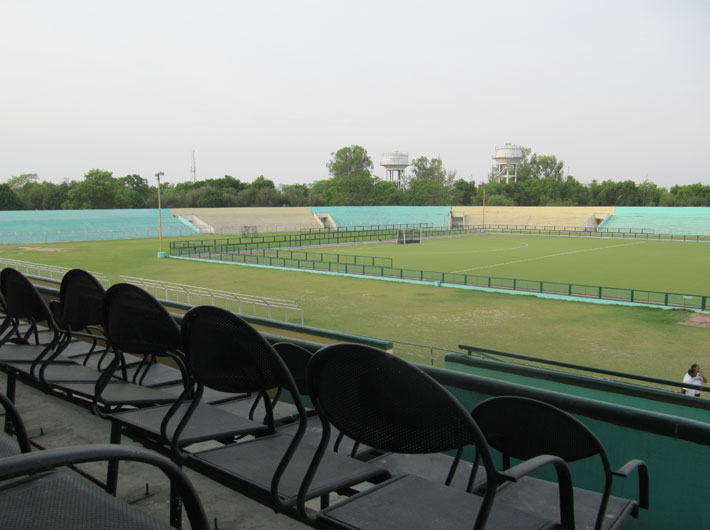As one drives down Mathura to Etah and Etawah, one sees a vast expanse of treacherous and arid geography falling alongside the Yamuna and Chambal rivers that is regarded as the land of perpetual war. Mythologies and histories have shaped the psyche of people who are often driven by primal instincts and emotions.
In this land, loyalty is rewarded and betrayal never forgiven. This region is regarded as impregnable bastion of Mulayam Singh Yadav and his family. In Mainpuri, Ferozabad, Kannauj and other adjoining seats, either members of the Yadav household or their retinues were given seats in reward for their unquestioned loyalty to the ‘Netaji’, as Mulayam is popularly known.
In the entire region, fiefs loyal to the family ruling the roost are not an exception but the rule. And the state has practically withered away and given way to these non-state actors. But such a setting creates a parallel and effective state which is also a reality that can easily be glimpsed in a village called Saifai, Mulayam’s birthplace. Saifai is clearly a state within state which is far more effective and benevolent than the formal state.
The village has a postgraduate institute of medical science with a specialised unit for treatment of serious ailments. The sports stadium offers the kind of facilities an international sport complex can boast of. The astro turf of the hockey ground is one of the best tracks in the world. The indoor badminton courts are extraordinary large while wrestling compound is very well done up. What’s more, there is even an airstrip, constructed only to facilitate air journey of the Yadav household, and it can easily match international standards.
Ordinarily, it would be wrong to find fault with Mulayam or his son, chief minister Akhilesh Yadav, for providing such facilities to the villagers. But has it changed the popular culture and made people take up sports? This is not the case. Local caretakers admit that nothing has changed in Saifai. “The youth here find politics more rewarding than sports,” one of them said.
In fact, 60-odd sportsmen who are being trained in these tacks belong to not Etawah and adjoining areas but different parts of the country. The sports authority of India (SAI) has opened an academy which uses these facilities. The local youngsters still stay away from the sports and pride themselves on being hangers-on to the political clans. Similarly, the medical institute and other facilities are simply a measurement of political clout wielded by the Yadav family.
As it happens, politics driven by emotions and primal instincts has its own limitations. If loyalty brings reward and betrayal a swift retribution, it gives birth to a culture of silent revenge. In a democracy, this culture gets expression at the time of polling. Mulayam seems to be aware of the limitation of his politics. This is the precise reason why he has been making desperate pleas to people of Etawah and talking about “izzat ka sawal (a matter of honour)”. He is aware of the fact that groups of non-Yadav OBCs are gradually drifting away from him and gravitating towards the BJP backed by upper castes.
Ramakant, a local BJP leader in-charge of the party’s election campaign, said that though the area is under the overweening influence of the ‘Netaji’, Etawah is no longer as invincible as it looks from outside. The cracks have appeared in Mulayam’s edifice thanks to a variety of reasons. The first annoying reason is the rather bad performance of the Akhilesh Yadav government. What appears to have fuelled deep discontent among people is bullying and hectoring of those claiming to be the loyalists of the Yadav family. This clannish conduct which may yield dividends in the game of emotional politics appears to be affected by the law of diminishing returns in today’s context. At best, the region’s perpetual war with itself is expected to find a democratic expression in the elections this time.

